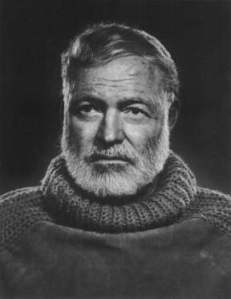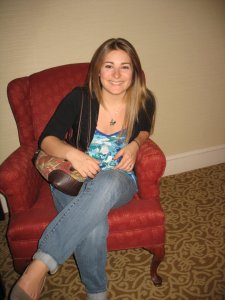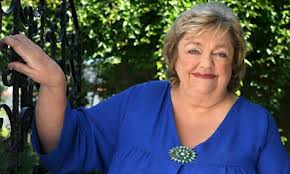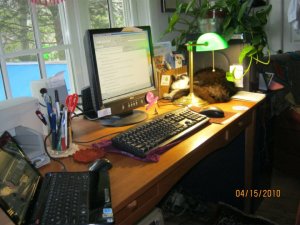I still remember that summer afternoon when my mother came upstairs to find me weeping into my pillow. I was 20 years old, and I had just discovered that my boyfriend had been two-timing me.
I also remember my mother’s advice: “You should be choosier about the company you keep,” she said. “Pick men who actually deserve you.”
Two weeks ago, over three decades after the boyfriend debacle, I found myself replaying my late-mother’s advice-this time about my writing career.
I had just submitted a personal essay to an online journal where I didn’t know the editor and had not previously placed one of my pieces. Less than 30 minutes after I pressed that “send” button, I got an email back.
 Rather than a submission status, what I saw on my laptop screen was my own essay being forwarded between an editorial assistant (email gatekeeper?) and the acquisitions editor, prefaced with a demeaning, reductive note–about me. Clearly, this person had intended to hit “forward,” but actually hit “reply.”
Rather than a submission status, what I saw on my laptop screen was my own essay being forwarded between an editorial assistant (email gatekeeper?) and the acquisitions editor, prefaced with a demeaning, reductive note–about me. Clearly, this person had intended to hit “forward,” but actually hit “reply.”
I won’t detail that email’s content here, but the word “ugh!” caught my eye. Then, the rest of the commentary was so off base from my essay’s intent and content, that I wondered if I had, in fact, received some other writer’s email by mistake.
Then I saw that remark about my national origin (I’m Irish born) and an assumption that I was attempting to use my nationality as an affirmative-action-styled tactic to gatecrash this particular publishing party.
This email message was never intended for me, but it was about me.
I re-read my submitted essay, alert for those places where any reader could or would infer or understand something so different from what was actually on the page.
As an ex-elementary school teacher, I detected that my work had been skimmed. And, just like my onetime kiddie students who faked or fudged their reading homework, or who struggled to read at grade level, this person had filled in the blanks with what she wanted to be there.
Before I typed my response, I closed that email, took deep breaths, and regressed to that heartsick 20-year-old.
The truth? The error here was mostly mine.
My mother was right. Just like with lovers and friends, we writers need to be selective about the editorial company we keep.
Don’t get me wrong. This isn’t about having my work rejected. In two decades of writing and publishing, I’ve earned enough rejection notes to wallpaper a small bedroom. Getting our work rejected is part of the writing life. If we are so conceited or naïve to believe otherwise, then this isn’t the right profession for us. I’ve also been super lucky in that, at least 85% of my editorial and literary agent interactions have been professional, collaborative and respectful.
Of course, there is an assumed power imbalance between those who create art and those who can purchase or showcase our creative work.
Some writers exaggerate this power imbalance to spend more time wallowing than actually writing. A very small number of editors interpret their curatorial status as a free pass or exemption from the norms, ethics and practices of the rest of the business world.
The bottom line: We wouldn’t hire a sketchy or unknown contractor to build an extension onto our house. Equally, we writers need to fully vet any publication to which we submit our work. I wish I had.
5 Red Flags That This Publication Is Not For You
1. Scrutinize the bios and Google the listed editors: Anyone with blogging skills can set up a journal and issue a call for author submissions. A quick online search of the editors’ own works and credentials will reveal their eligibility (or not) to judge or showcase your work. If a Google or Amazon search throws up a dossier that’s mostly self-appointed or -published, then pass on this publication.
2. Read what’s there: Look beyond the front-page advertising jingles to read most or all of its currently published pieces. Trust your own values, standards and literary poetics. If that little voice inside says, “no,” listen to it.
3. Click bait titles: Compare the published writers’ topics with the editorial titles. Is there a clear or hyped-up mismatch? Do the titles scream SEO, Google searches or stoked-up controversy? If so, keep researching to find a more thoughtful, less click-hungry journal.
4. Typos, misspellings and wrongly used words: Yes, you have a responsibility to only submit well-edited and polished work. But if your target journal’s past published pieces include incorrect grammar or usage, or if the writing is too gimmicky or slangy, these are clues that nobody is in charge here. Or worse, there is someone in the editorial driving seat, but he or she doesn’t know the difference. Those typos or missing words or misspellings will ultimately reflect on you and your byline.
5. The refrigerator magnet rejection: Some rejection notes, especially those with a few lines of feedback, will make you a better writer. But never re-query or submit to that editor who sends a note that reads like a set of those refrigerator-magnet word games. His or her “feedback” reads like a randomly chosen set of words that makes little or no sense and leaves you scratching your head and asking, “Huh?” This is a lazy response from someone who doesn’t even take the time to craft a standard, writer rejection template.
![]() How do you vet a new publication before submitting? Share your tips in the comments below.
How do you vet a new publication before submitting? Share your tips in the comments below.
















































